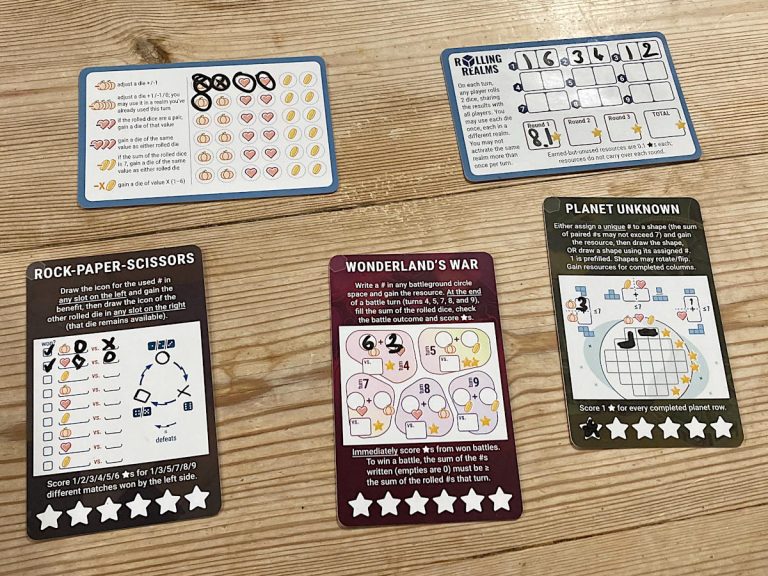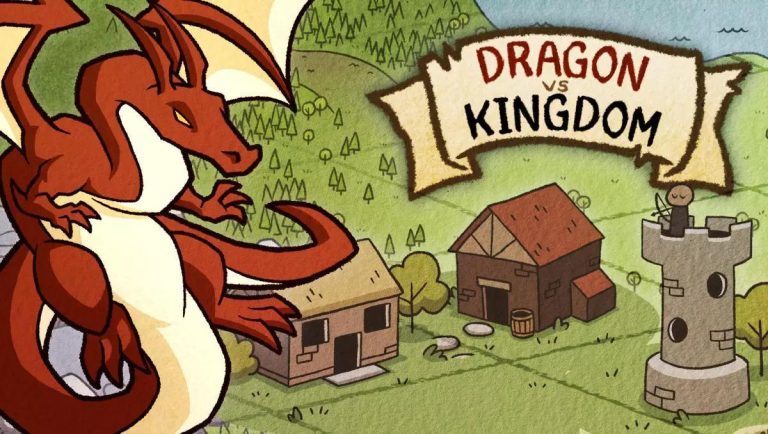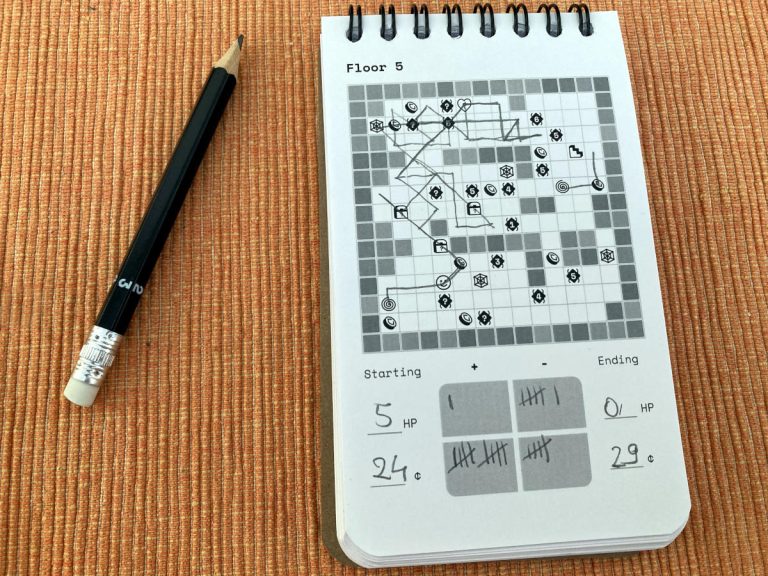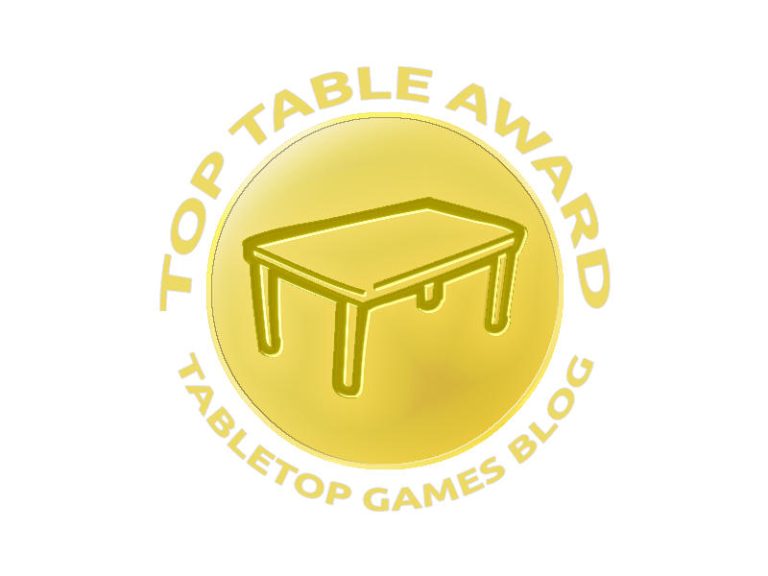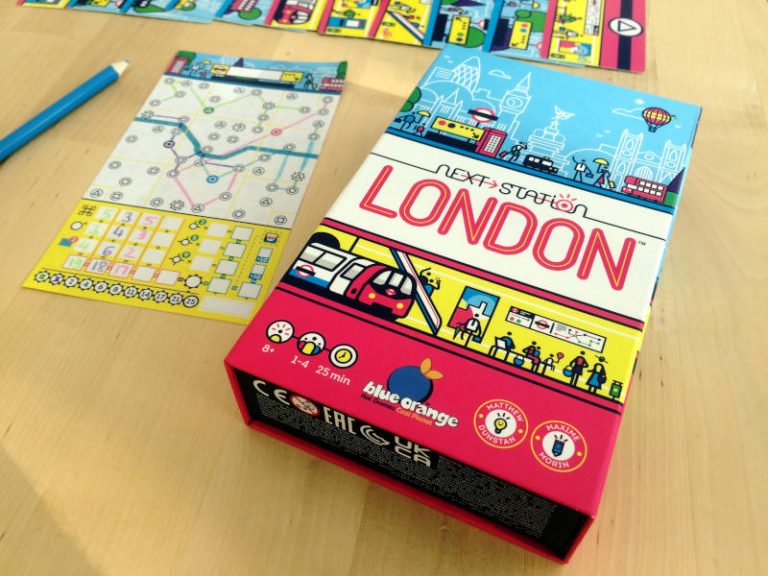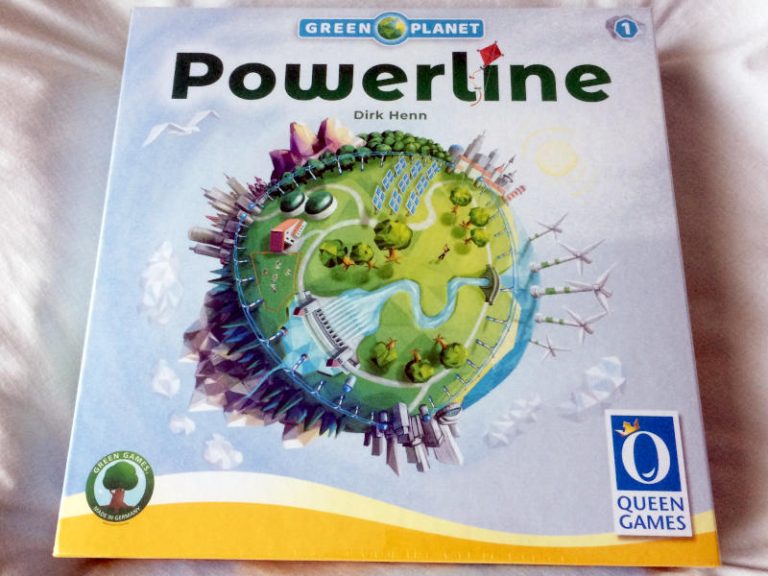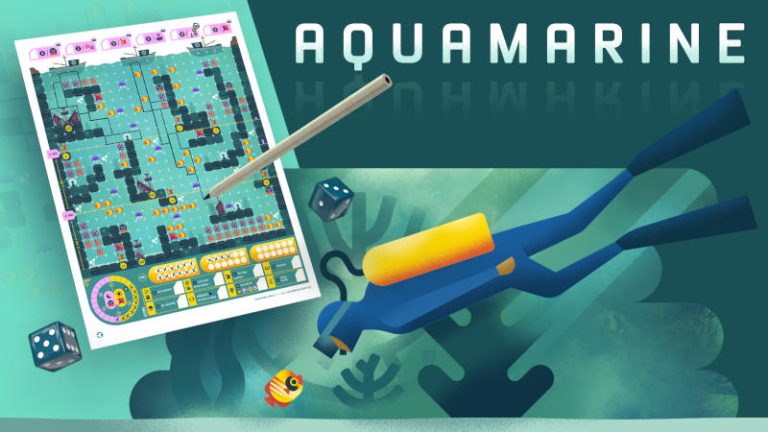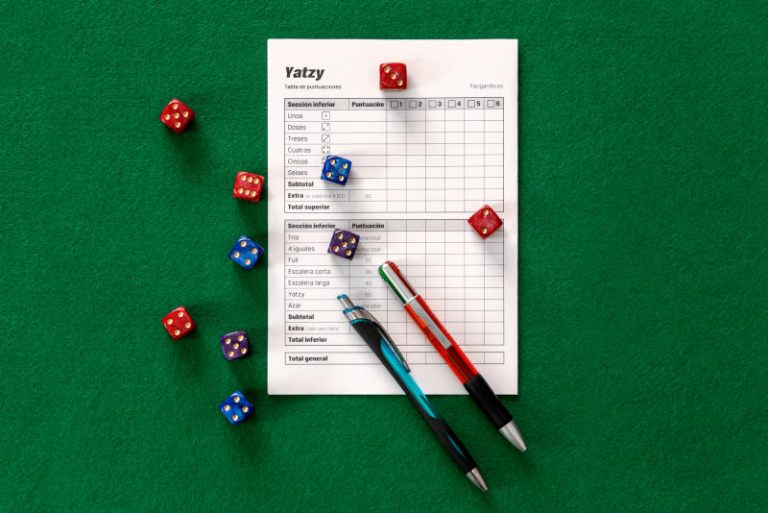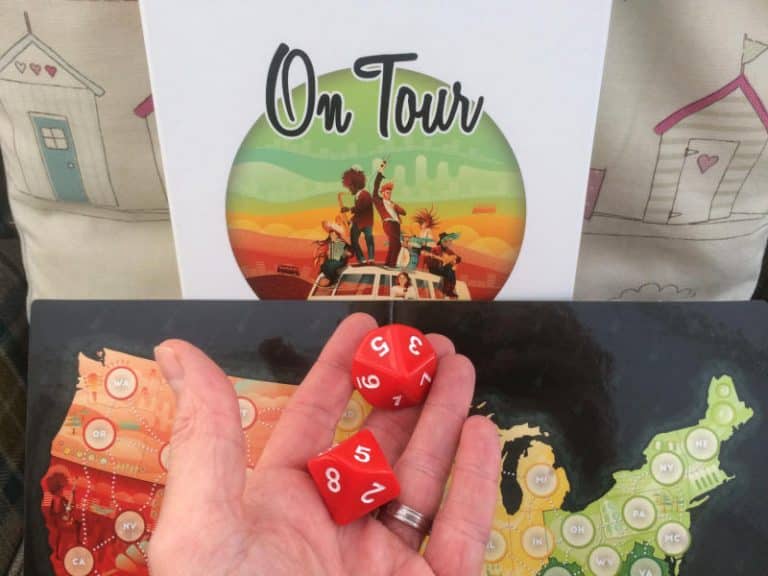Rolling Realms Redux (Saturday Review)
The seemingly endless lands lay in front of us. Ahead of us, we could see a small village where cute little dragons were tending stores. To our left, people were playing cards, closely watched by a row of playing cards and a rather angry-looking queen. Above us floated different spaceships, some delivering their wares to the small village, while others were expanding the land with new sections. What we saw were the amazing Rolling Realms Redux by Jamey Stegmaier and Karel Titeca from Stonemaier Games.


